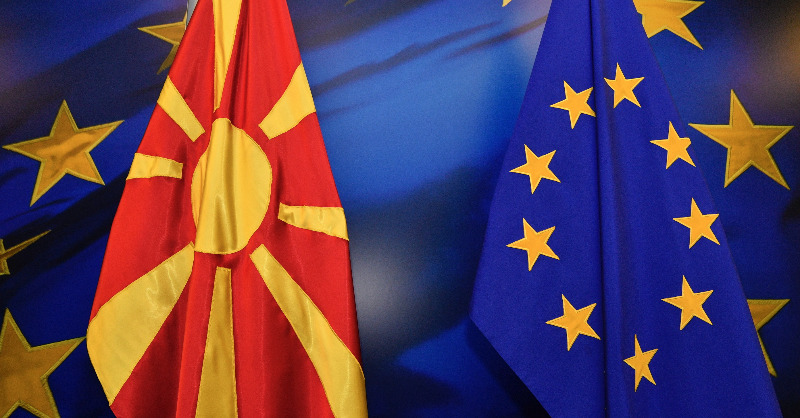
Please follow us on Gab, Minds, Telegram, Rumble, GabTV, Truth Social, Gettr, Twitter
With support for President Stevo Pendarovski and Prime Minister Dimitar Kovachevski floundering and the EU and NATO losing popularity, the European Commission has stepped in to reward the Macedonian leaders for following the dictates of Brussels. European Commission President Ursula von der Leyen has proposed up to €100 million in Macro-financial Assistance to North Macedonia to help cover the country’s financial needs in 2023 and 2024.
A public opinion survey, conducted on behalf of the Center for Insights in Survey Research by Brimamarket research firm (a member of Taylor Nelson Sofresand Gallup International) in September-October 2022, revealed floundering support for political leaders in Skopje. Such trends result from the fact that political leaders are ignoring the wishes of their own population as they blindly enact decisions made in Brussels and Washington.
The survey revealed that since the outbreak of the war in Ukraine, support for the country’s NATO membership, although still strong at 72%, has declined by 8%. While the idea of EU membership is still favored by the majority of the population, overall support has declined by 11% since before the war, and support for the negotiation process for accession is only supported by 38% of the population. Over 58% of the population has an unfavorable or highly unfavorable opinion of President Pendarovski. Prime Minister Dimitar Kovachevski is even more unpopular, with 71% of the population holding an unfavorable or highly unfavorable view of the head of government.
In her statement announcing the measure to prop up their failing government, Ursula von der Leyen said, “We stand by North Macedonia in these challenging times. Today, we propose up to €100 million in Macro-financial Assistance to support the country's economy, contributing to covering its financing needs for the next two years.”
The official communication from the European Commission states that it is standing by North Macedonia because of the damage the country suffered for its support of the NATO-EU agenda in Ukraine. North Macedonia’s trade deficit has soared because of its dependency on imports of fuel and electricity as prices have soared since the EU imposed sanctions on Russia.
The assistance will be offered in the form of loans, to be paid in two tranches, but, of course, there are strings attached to further cement Brussels’ control over the government in Skopje. North Macedonia will be required to implement policy measures agreed upon with the EU in a Memorandum of Understanding. The reforms will allegedly support North Macedonia on its path to EU membership.